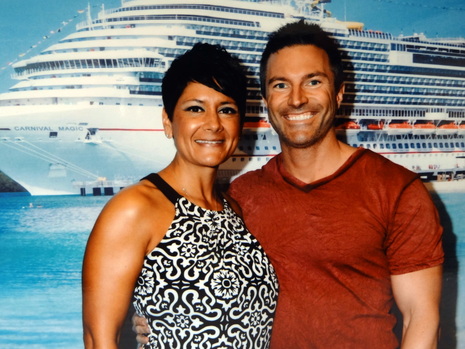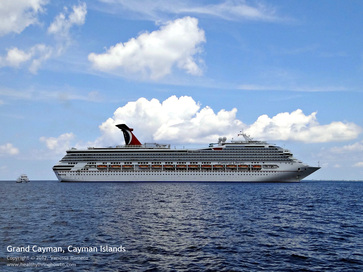- Dr. Jeff Volek, one of the most respected and top researchers in low-carb nutrition in the world, as well as one of the authors of The Art and Science of Low Carbohydrate Living and The New Atkins for a New You.
- Dr. Andreas Eenfeldt, a well-known, Swedish medical doctor specializing in family medicine. He is better known as the Diet Doctor, leading the way in the low-carb high-fat revolution happening in Sweden. (www.dietdoctor.com)
- Jacqueline Eberstein, RN, a low-carb advocate and educator since 1974. She is best known for her work as the Director of Medical Education at The Atkins Center for Complementary Medicine in New York City, working alongside the late Dr. Robert Atkins for much of her career. (www.controlcarb.com)
- Dr. William Davis, cardiologist as well as Medical Director and founder of the Track Your Plaque program for heart disease prevention and reversal. He is more recently known for his outstanding book Wheat Belly. (www.wheatbellyblog.com)
- Dr. John Briffa, a leading authority on the impact of nutrition and other lifestyle factors on health and illness. He is the author of Escape the Diet Trap and a practicing physician in London, England (www.drbriffa.com)
- Other low-carb experts included Dr. Eric Westman, Dr. Mary Vernon, Dr. Michael Fox, Dr. Helen Hilts, Dr. Ann Childers along with many other health and wellness enthusiasts.
We most definitely expanded our knowledge over the course of the three days of lectures, however, much of the insight we gained came from meeting and speaking with people outside the lectures. Many of those who attended the cruise were trying to resolve weight issues themselves, so it was interesting and eye-opening to hear about their low-carb journey. While the information presented was the same for all the attendee's, we imagine the take-aways may be different depending on where one is on their journey.
5 Lessons from the 5th Annual Low-Carb Cruise
1. The best nutrition plan only works if you follow it.
Research available today on low-carb living clearly shows a benefit for health, weight management and even certain types of performance enhancement. However, it only works when it’s followed on a daily basis. To be effective, low-carb needs to be a lifestyle, not a diet. Those who don’t find success with a reduced-carbohydrate nutrition plan may follow it for a few days, a few weeks or even a few months but oftentimes fall back into unhealthy eating habits. The physiological benefits of low-carb nutrition occur after 2-4 weeks of consistency, as many of the doctors and researchers explained and just one high-carb meal can derail progress.
2. Food addiction is a real issue. The “just this once” mentality is the best way to keep the addiction alive.
We heard a number of people tell their story of how they had lost, regained, lost and regained significant amounts of weight. The story was the same, after reaching a healthy weight by following a low-carb plan, a day came along where they made the choice to indulge in their high-carb trigger food. It could have been a birthday party where there was cake and ice cream. It could have been a fast food meal after an unusually high-stress day. It could be for any number of reasons, but we consistently heard of a single point in time each person made a choice to turn away from their low-carb nutrition and lifestyle plan that had served them so well. That single point became a long period of time, during which they gained back most, all or even more weight than they originally lost. The only way a sober alcoholic loses his or her sobriety is by taking that first sip of alcohol. It’s no different with trigger foods and food addictions. The short-term satisfaction of a spoonful of ice cream, a bite of pizza or a piece of cake is not worth the pain, frustration and discouragement of gaining back the weight once lost.
3. Regular exercise isn’t just for building muscle or managing weight. It should be a daily habit.
There was some discussion about how little exercise people can do and derive benefit from. We were disappointed to hear recommendations for as little as 15 minutes 1-2 times per week of exercise. Some form of exercise or activity must be part of people’s lives on a daily basis. Our bodies are made to move, and those who try to do as little as possible, while still being out of shape and overweight, are not likely to gain much benefit. Of course, nutrition plays the most important role in helping people manage their weight, but exercise is more than a weight loss tool.
4. You can be “healthier” while still being overweight, but it doesn’t mean you’re “healthy”.
For many people, losing weight and restoring their health can be a challenging process. Progress along the way should be celebrated, such as reducing fasting glucose and triglyceride levels, increasing HDL cholesterol levels, dropping a pant size etc. That being said, excess body fat is still not healthy, even when one is healthier than he or she was in the past. Fat tissue is an active endocrine organ. The more you have of it, the more likely it is to cause health problems. While following a low-carb lifestyle may significantly improve blood lipids and provide better control of blood glucose and insulin, excess body fat contributes to other health concerns such as cancer and dementia. Celebrate progress, but don’t let progress lead to complacency.
5. It isn’t a vacation that throws you off your nutrition plan, it’s the choices you make while you’re on vacation.
Though there were about 300 low-carbers on the cruise, it was a small segment of the ship’s population. We didn’t have food made specifically for our group, which meant we needed to make good decisions just like we would at home. Sugary, starchy foods were available everywhere, including various kinds of breads, pastas, pastries, breakfast items, desserts and fancy mixed drinks. There were also vegetables and fruit, a variety of meats, cheeses and other protein options. We ate omelets, fish, steak, chicken, pork, salads and other tasty low-carb foods. When it came to alcohol, we chose a glass or two of red wine or a shot of tequila with club soda. Taking a vacation can be one of the healthiest things you can do for your mind, so while you’re reducing stress and improving your mental health, don’t make choices that sacrifice your physical health.
This post was co-authored by my handsome husband. Tom is the Director of Nutrition & Weight Management for Life Time Fitness and Life Time Weight Loss.

